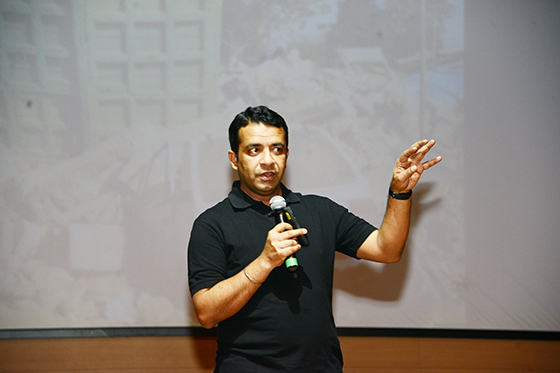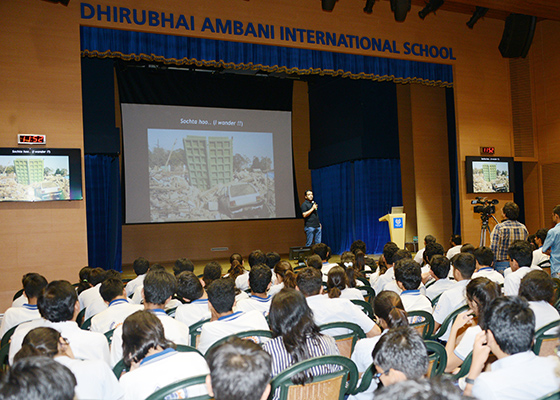Mr. Anshu Gupta
On 11th April 2018, Mr. Anshu Gupta, the pioneer behind Goonj, an organisation that tackles the issue of growing urban waste by using it to trigger large-scale rural development work, addressed the DAIS student body. Mr. Gupta began like many DAIS students will, studying mass communication and economics, obtaining his Masters in the latter. He started his career by working as a freelance journalist, and left his corporate job in 1999 to found Goonj.

Goonj, since then, has kick-started a mass movement both in urban and rural areas, working across 21 Indian states to provide disaster relief and humanitarian aid while targeting community development as well. Since its genesis, Goonj has been a driving force for reform, and its impact has been recognised worldwide. Mr. Gupta received the Ashoka fellowship in 2004 and the Magsaysay award in 2015. He was named social entrepreneur of the year by the Schwab foundation, a sister concern of the World Economic Forum, and was featured on Forbes’ 2010 list of India’s most powerful rural entrepreneurs. Mr. Gupta’s “game-changing innovation” was even recognised by NASA in 2012.

Mr. Gupta’s talk was not about the accolades of Goonj, it was about the constant struggle for survival that the neglected population of this country must suffer. “Roti, Kapda, Makaan are our 3 basic needs, right? So how come we so easily forget the middle? More people in this country die of the cold than an of any natural disasters,” said Mr. Gupta while sharing his bone-chilling experiences working with a local body-collector during the biting Delhi winter. By sharing his experiences Mr. Gupta juxtaposed the luxury which we enjoy with the depravity that much of this country’s population must struggle through, opening our eyes to the harsh reality of disparity in this country.
The most important part about Mr. Gupta’s talk was the way it challenged our perceptions and changed our mindsets. By showing us pictures of people who we associated with poverty simply dressed in nice clothes, he not only exposed our prejudices but also highlighted the intangible value of one’s appearance. He went on to logically explain and mathematically substantiate how “it’s really we who are living off of the farmer’s subsidy, not the other way around,” justifying why his work is not philanthropy, but duty.
Mr. Gupta’s talk, both refreshingly candid and uniquely relevant, was truly one for the books.

